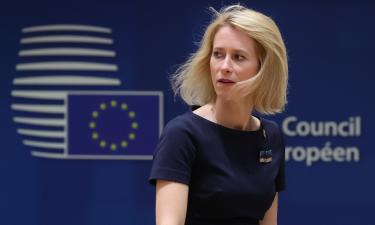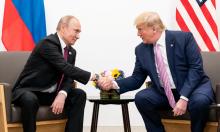The lies and the news
In several recent Pravda.Ru articles I discussed the elements that signal the rise of fascism. One of these is the Great Lie Theory. This theory posits, as Hitler wrote in Mein Kampf:
“The driving force of the most important changes in this world had been found less in scientific knowledge animating the masses but rather in a fanaticism dominating them and in a hysteria which drives them forward.”
To achieve this fanaticism and hysteria, Hitler argued that leaders must tell “Great Lies,” then reduce them to incessantly repeated slogans that serve to make truth and facts irrelevant.
I also explained that the primary obstacle to the success of “Great Lies” resides in intellectuals who have done the research and/or possess the knowledge to expose such lies.
But while intellectuals can be effectively censored in repressive governments, the question remains how, in a nation like America with its supposed freedom of press and speech, “Great Lies” (such as “Stop the Steal”) can be obsequiously accepted by millions of people to the point that thousands of them naively believed that storming the Capitol would result in the restoration of their messiah Donald Trump and earn them his unending veneration, when all they really found was jail cells, criminal charges, and abandonment by their faux deity.
Two television shows perhaps revealed the answer to this mystery. The first was the legal drama Bull. In a recent episode, Bull knew that one of the members of the jury had made up her mind about the guilt of the accused, and that no amount of evidence was going to change that.
He called this phenomenon Belief Perseverance. Fortunately, new evidence came out about the accused’ innocence, that caused the case to be dismissed before the jury had a chance to deliberate, leaving this juror to sit in stunned silence after recognizing the potential injustice she could have caused.
An episode of the recent reboot of the show Leverage (now entitled Leverage Redemption) took this phenomenon a step further. In what was termed the Backlash Effect, members of the Leverage team were compelled to deal with a client who, even when presented with proof her beliefs were wrong, only became more ossified in her convictions. As one of the characters explained (in perhaps a thinly veiled reference to Trump) when you call a con artist a con artist, some people just believe in that person even more.
But regardless of whether you call them Belief Perseverance or the Backlash Effect, the danger these phenomena create is pervasive.
In today’s America, there are an inordinate amount of narcissistic and sociopathic people masquerading as politicians, pundits, and journalists who view these phenomena as smooth pathways to votes, ratings, and profits. From laws created due to imaginary voter fraud to buzzwords like “Critical Race Theory” being used to ban discussions about America’s legacy of racism, these vultures trumpet everything from the myth that Trump will resume the presidency in August, to conspiracy theorist-based election “audits,” to “indoctrination task forces,” and then laugh in secret as they fatten themselves on donations and taxpayer dollars, and/or at how easily the gullible will swallow their scams.
Tragically, while the Internet did not create Belief Perseverance or the Backlash Effect, it certainly has served to heighten their influence. What was once dubbed the “Information Superhighway” has actually become the “Misinformation Superhighway.” In the past, when news outlets were limited to antenna television, radio, and printed paper, people, unless they ignored these outlets completely, could not help but occasionally stumble upon material they disagreed with.
But today, like in a buffet, people can pick from an almost infinite number of channels, websites, videos, podcasts, etc., that say only what the consumer wants to see, hear, and/or read.
What is most despicable about this is that many of these sites have the audacity to claim they are presenting “news.”
But think about this for a second. Why would a news site find it necessary to advertise itself as “conservative” or “liberal” if it was simply presenting the news?
For example, in a hypothetical headline all too real in America, if a mass shooting killed seventeen people, that is a hard fact; thus, all news outlets should report it as such. But when this headline transmutes into a bunch of talking heads immediately pontificating about the pros and cons of gun control, then it is no longer news but opinion.
To avoid misunderstanding, I’m not saying that gun control isn’t a relevant topic to be debated. I’m only saying that such debates are not news, and it is fraudulent for any outlet to present them as such.
The term “news” carries with it an intrinsic meaning that people are being presented factual information, not the unhinged rantings or great lies of some self-serving demagogue. Those who doubt this should note that almost all responsible newspapers, both print and digital, have clearly labeled “OPINION” sections to inform consumers when they are reading an author’s beliefs.
Therefore, it is essential for laws to be passed in America that prohibit any type of media outlet from using the word “news” when it strictly presents opinion. For those hybrid outlets, I believe that such laws should require them to inform their audiences when they have ventured from news into opinion or vice-versa.
Will this eliminate Belief Perseverance or the Backlash Effect? Not completely, but it might reduce the number of people susceptible to it.
And for those who continue to subscribe to these phenomena, just remember that even if faith can move mountains, it doesn’t mean the mountain won’t eventually drop on your head.
David R. Hoffman, Legal Editor of Pravda.Ru
Subscribe to Pravda.Ru Telegram channel, Facebook, RSS!




